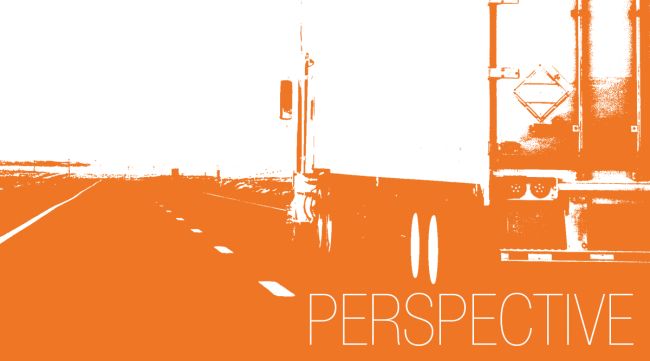The trucking industry is the backbone of the economy.
Finding the right balance between cutting emissions and continuing to effectively meet demand is our ultimate green mission.
The global trucking industry is committed to reaching net-zero emissions by 2050, but the approach, to work, will have to consider regional and national specificities. What works in Germany or Japan won’t necessarily work across the United States.
More importantly, carriers should have the freedom to choose what’s best for their operations.
IRU, the world road transport organization, where I’ve had the honor to work for 28 years — the past 10 as secretary general — has developed a Green Compact based on this exact conviction: a scalable approach allowing all regions and carriers to decarbonize in line with on-the-ground realities.

de Pretto
At the heart of our efforts is technology neutrality.
All options that can help to decarbonize will have to be part of the solution. We must reject the all-or-nothing approach. There is no silver bullet.
IRU supports the long-term use of three technological pillars for heavy-duty vehicles: hydrogen fuel cell, battery-electric and, of course, combustion engine based on carbon-neutral fuels.
The industry also needs a holistic “well-to-wheel” standard for measuring and monitoring carbon dioxide emissions resulting from the production, supply and use of the energy, as opposed to a narrower “tank-to-wheel” approach in which only the energy use and consequent emissions of the vehicle are considered. The tailpipe approach is ineffective and significantly distorts decarbonization efforts.
Finally, we need to first focus on quick wins, the “low-hanging fruit.” Quick wins include eco-trucks that carry more goods than standard vehicle combinations (two eco-trucks carry the cargo of three standard trucks); digital platforms to optimize logistics; and driver training (eco-driving can decrease fuel consumption by up to 15%).
But again, carriers must be able to decide what’s best for their operations.
We have already realized tremendous feats reducing other emissions. The trucking industry has cut its nitrogen oxides emissions by up to 98% over the past 35 years. Carriers can equally succeed in achieving the decarbonization challenge, provided that certain conditions are met.
Governments must support us and provide the investment and incentives needed for trucking companies in each region to decarbonize.
IRU is the voice of millions of carriers globally, supporting industry efforts and working with its members, such as American Trucking Associations, to find solutions and share best practices.
There is no magic button to be pushed that will make us carbon-neutral by 2050. We must start down the road to decarbonization today. But carriers should decide how.






